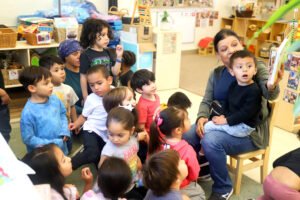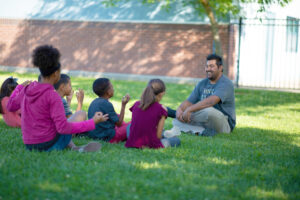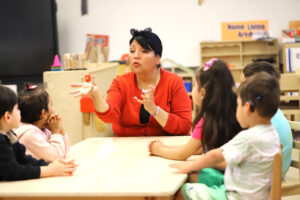September 2, 2025
How Family Storytelling Shapes Children’s Growth
In today’s busy world of schedules and screens, one of the simplest yet most profound ways families can connect is by sharing stories. Not just reading books together but telling stories. Personal, funny, heartfelt, or even silly, family storytelling creates a powerful foundation for connection, identity, and learning.
But beyond the warmth of nostalgia, did you know storytelling can shape your child’s cognitive, emotional, and social development?

More Than Just “Once Upon a Time”
When you tell your child a story about your childhood, a grandparent’s journey, or a moment they experienced but may not fully remember, you’re doing more than entertaining. You’re offering:
- Language and Vocabulary Expansion: Children exposed to regular storytelling build stronger listening skills and vocabulary comprehension, which supports early literacy.
- Emotional Literacy: Stories that include challenges, resolutions, or even mistakes teach kids how to navigate emotions. A recollection about a time you felt scared or embarrassed (and how you worked through it) can model resilience and empathy.
- A Sense of Identity and Belonging: When children hear stories about their family, it helps them feel grounded in a larger narrative. It answers questions like, Where do I come from? What values do we share as a family? Studies show kids who know more about their family history tend to have higher self-esteem and better coping skills.

Storytelling in Everyday Moments
The best part? You don’t need a campfire or a perfectly planned moment to tell stories. Try these easy ways to build storytelling into your family’s daily rhythm:
- Over Meals: Share “a story from when I was your age” while passing the vegetables.
- During Car Rides: Let everyone take turns telling a story based on a “What if…” prompt or a memory.
- Bedtime Rituals: Rotate between reading a book and telling a real-life or made-up story. Invite your child to co-create the ending.
Prompting Stories from Your Child
Children are natural storytellers when given the space. Try questions like:
- “What was the funniest thing that happened today?”
- “If you were a superhero in school today, what would your power have been?”
- “If your day was a comic book, what would the first page look like?”
These invite imagination while developing narrative thinking and sequencing, a key part of early literacy.

Tiny Tales, Big Bonds
You don’t have to be a master storyteller. Children respond to sincerity far more than polish. Your willingness to share, even the awkward or imperfect moments, builds emotional safety and trust.
So this September, carve out time to tell a story. One that makes your child laugh, think, or simply feel seen. You may be surprised at what they remember most later, not the perfect lesson, but the shared moment of us.
Because in the end, it’s these little windows of connection tucked into car rides, dinner conversations, or bedtime chats that become the foundation of their memories. Your stories may be small, but to your child, they’re a legacy. At Catalyst Kids, we believe these shared moments help shape not just strong learners, but strong families.